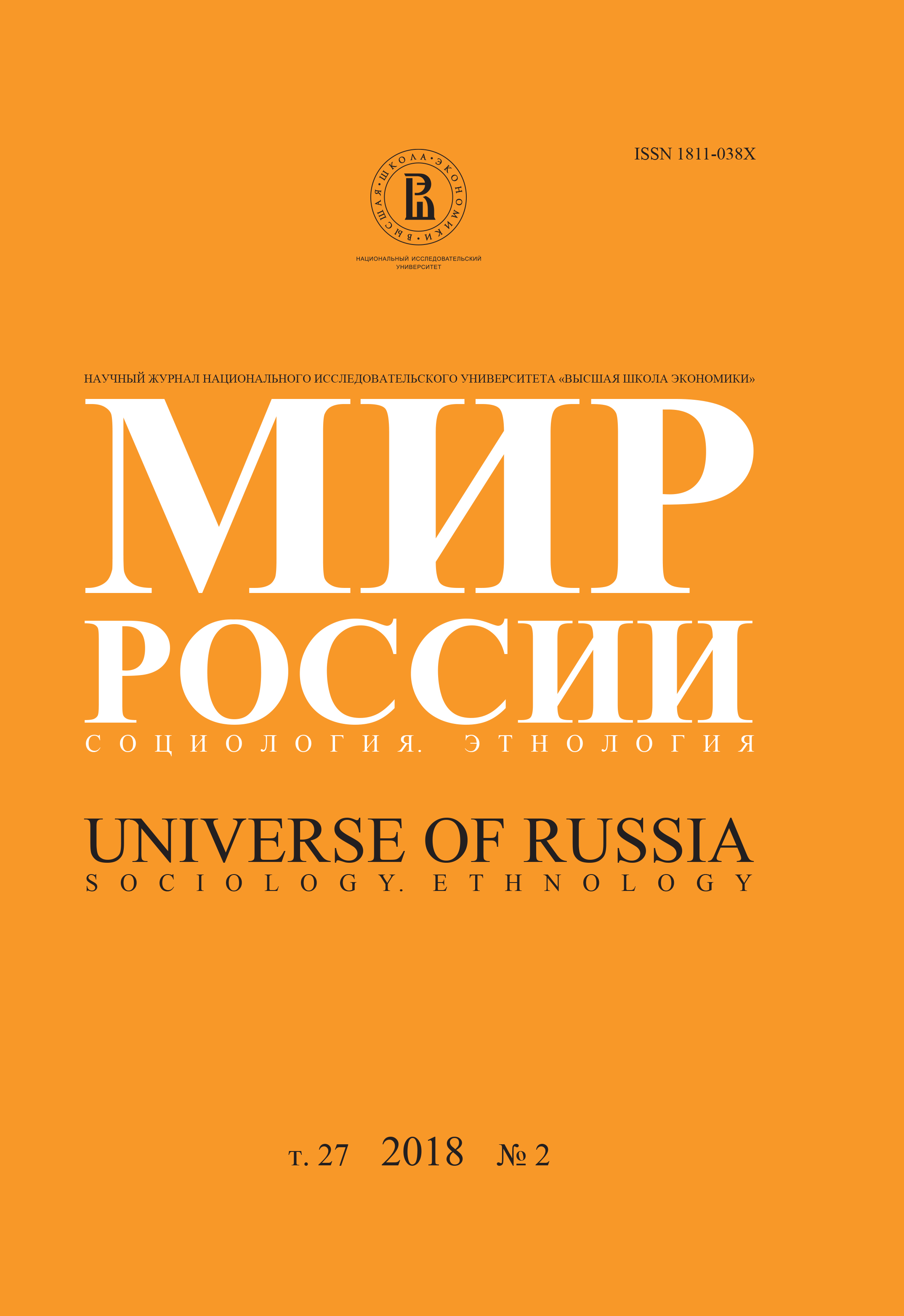Transformations in the Welfare Regime and Discourse on Social Justice in Russia
Abstract
Elena Danilova – PhD in Sociology, Head, Center for Theoretical and Historical Sociological Research, Institute of Sociology RAS, Federal Research Sociological Center RAS. Address: bldg 5, Krzhizhanovskogo 24/35, Moscow, 117218, Russian Federation. E-mail: endanilova@gmail.com
Citation: Danilova E. (2018) Transformations in the Welfare Regime and Discourse on Social Justice in Russia. Mir Rossii, vol. 27, no 2, pp. 36–61 (in Russian). DOI: 10.17323/1811-038X-2018-27-2-36-61
This article investigates the main tendencies in the welfare provision in the Russian Federation in correspondence to the discourse of social justice during the Soviet era and after the fall of communism. The paper argues that the debates around social justice in the official rhetoric and expert opinions occur explicitly when there is a public need for the justification and legitimation of social changes. The paper also identifies periods in the development of social policy due to the variety of different, but equally important, endogenous and exogenous factors such as the presence of national economic vulnerabilities, the presence of contradictory measures, and non-contingent decisions taken by the government. The article shows that social policy in Russia, being under the influence of exogenous and endogenous factors and being the result of internal political struggles at each stage, has been transformed into a model that does not fit any of the proposed theoretical regimes of welfare state. It has a centauric nature, in which the
neoliberal logic of reform is combined with an authoritarian state management and a heavy bureaucratic regulatory machine. Social policy, even in the years of its recovery, did not reduce social inequality, which remains high ever since its rapid rise in the early 1990s.






